Commercial pigeon farming is not a new business idea. It is a very interesting and profitable business. And you can start this business easily with relatively less investment, even if you are a beginner. Most of the people in the rural area used to raise some pigeons in their home for food or just as pets. Pigeon farming requires less labor and low investment. Even you can also raise and take care of these birds during your leisure time.
Meat of baby pigeon (squab) is very tasty, nutritious and has good demand and value in the market. So, if you want to start meat production business, then pigeon farming can be a great way to make some extra income. You can also start this business if you want to sell show pigeons, or if you want to sell pigeons to the people who want to keep pigeons as pets.
However, most of the people used to raise pigeons in traditional ways. But raising pigeons using modern methods is more profitable than traditional ways. So, if you want to be successful in pigeon farming business, then you have to use modern rearing techniques and also have to take good care of your birds.
Here we are trying to describe more about the importance/advantages of pigeon farming and the required steps for starting and operating this lucrative business.
What is Pigeon Farming?
Pigeon farming means, raising pigeons for producing meat, eggs or for using as show birds for as pets.
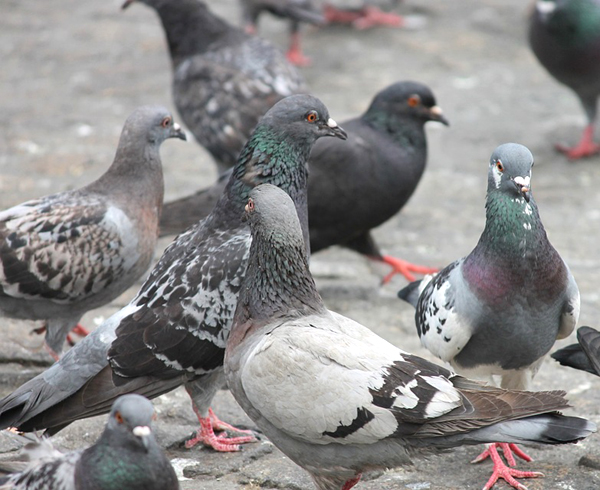
Advantages of Pigeon Farming Business
Pigeon farming business has some great benefits. It’s very easy to start this business. Here we are trying to describe the top advantages of this business.
- Pigeons are domestic birds and its very easy to handle them.
- Commercial pigeon farming is not a new business idea. People are raising pigeons for food or as pets from a long time ago.
- From their six month of age, female pigeons start laying eggs and produce two baby pigeons per month on an average.
- Pigeons can be raised easily in the home yard and roof of the house.
- You can also utilize your backyard for raising some pigeons.
- It takes about 18 days to hatch their eggs.
- Baby pigeon (squab) become suitable for consumption within their 3 to 4 weeks of age.
- You can build a pigeon house in a small place with little investment.
- Feeding costs for keeping pigeons is very low. In most cases they collect food from wild if you let them to roam freely.
- Pigeon meat is very tasty, nutritious and has a great demand and value in the market. You can enjoy pigeon meat if you raise pigeons in your own farm.
- Pigeon farming is also very pleasing and entertaining. You can spent some good times through watching the activities of pigeons.
- You can get maximum profit form them, by investing small capital and labor.
- Diseases are comparatively less in pigeons.
- Pigeon waste is a good fertilizer for crop cultivation.
- Pigeons help to keep the environment safe by eating different types of insects.
- Pigeon farming can be a great income source for the people of some poor countries.
- You can utilize your family labor for raising pigeons.
- Commercial pigeon farming is very profitable. And it can be a good income source for the rural people. Especially for women and children.
How to Start Pigeon Farming Business?
Staring pigeon farming business is very easy and simple. Even the beginners can start this business easily. Here we are trying to describe more information about starting and operating a successful pigeon farming business for beginners.
Step 1: Learn Practically
First of all, try to learn practically about this business from an expert or existing pigeon farmer in your area. Try to visit as many farms as you can in your area to learn more about this business.
Step 2: Complete a Training
Commercial pigeon farming is not as popular as other poultry farming business. So, it can be difficult for you to find a training facility in your area. But if there is any source, take advantage of it. You can contact your local agriculture extension office to learn more about this. Some agriculture collages or universities also provide training.
Step 3: Make a Business Plan
Making a good business plan helps to start and operate a business perfectly. So, try to make a good and effective pigeon farming business plan and work according to the plan. Try to include everything in your business plan from starting to marketing. You can ask for help from an expert if you are a beginner.
Step 4: Select a Good Location for Your Pigeon Farm
Selecting a good location for your pigeon farm is also very important. In small scale production, you can start it within your home area. But for commercial production, selecting a good location is very important. But it is very important to select the location closer to your residence.
Consider some basic facilities while choosing your farm location such as availability of food, medicines etc. And also emphasis marketing facilities while choosing the location for your farm.
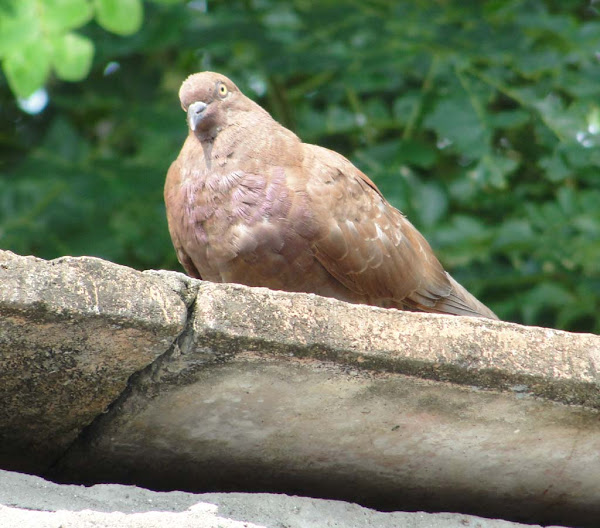
Step 5: Determine Your Purpose
Determine the purpose of your pigeon farm before choosing the right breed for you. Pigeons can be raised for many different purposes such as, they can be raised for meat, show purpose or for selling to interested people who want to raise as pets. So, determine your purpose and then select the right breed for your farm.
Step 6: Select Good Pigeon Breeds
There are about three hundred pigeon breeds available around the world. But not all of these breeds are good for commercial production. Some are good for meat production, some are good for raising as pets, and some are good for show purpose. Meat producing and entertaining pigeons are the most common types.
Meat Pigeon Breeds: White king, Texona, Silver king, Gola, Lokha, etc. are meat pigeon breeds.
Entertaining: Moyurponkhi, Shirazi, Lohore, Fantail, Jacobin, Frillback, Modena, Trumpeter, Trubit, Mukhi, Giribaz, Templar, Lotal etc. are most popular entertaining pigeons.
Main purpose of pigeon farming is for their meat. Meat of baby pigeon is soft and tasty than the adult one. Weight of some fleshy squab productive pigeon breeds are listed below.
| Breeds Name | Adult | Squab |
| White King | 755 | 500 |
| Carneau | 700 | 450 |
| Homer | 730 | 400 |
| French Mondain | 750 | 550 |
| Swiss Mondain | 800 | 600 |
Step 7: Purchase Necessary Equipment/Supplies
Like most other poultry birds, raising pigeons also require some equipment, supplies or tools. Here we are trying to list the most common and required equipment.
- Pigeon Loft
- Nesting Boxes
- Perches
- Feeders
- Water Containers
- Pigeon Feed
- Grit and Mineral Supplements
- Pigeon Bands or Leg Rings
- Pigeon Traps
- Healthcare Supplies
- Pigeon Bath or Dust Bath Area
- Cleaning Supplies
- Lighting
- Ventilation
- Pigeon Transportation Crates
- Materials for Record Keeping
Step 8: Purchase Pigeons
Purchase pigeons for starting your farm from local suppliers or breeders. Always try to purchase good quality, healthy and active birds for starting your farm.

Step 9: Ensure Good Housing Facilities
Providing the birds with good housing facilities (with the availability of all required facilities) is very important for successful pigeon farming business. So, try to ensure good housing facilities for your birds. Keep in mind the following factors before making house for your pigeons.
- Built their house in a higher place. This will keep the pigeons free from dog, cat, mouse and some other harmful predators.
- Ensure huge flow of air and light inside the house.
- Prevent the entrance of rain water directly inside the house.
- You can build the house by using thin wood or tin, bamboo or with packing boxes.
- Each pigeon requires about 30 cm long, 30 cm high and 30 cm wide space.
- Each room should accommodate two pigeons.
- The house will be adjoining to each other and polyhedral.
- Keep a door on every room measuring 10×10 cm.
- Always try to keep the house clean and dry.
- Clean the house once or twice per month.
- Keep the food and water pot near the house.
- Keep some straw near the house, so that the pigeons can make bed for them.
- Keep water and sand near the house, as they clean their body using water and dust.

Step 10: Ensure Balanced Feeding
Feeding the birds with very good quality and nutritious food is the most important part of commercial pigeon farming business. Pigeons generally eat wheat, maize, paddy, rice, enamel, legume, mustard, gram etc. Keep foods in front of their house and they will take the food as much as they need.
You have to serve them balanced feed for proper growing, good health and for proper production. You can also serve them balanced feed, prepared for the chickens. Pigeon feed should contain 15-16 % protein.

Every pigeon consume 35-50 grams of grainy feed daily. For fast growing of baby pigeon and for nutrition of adult, feed them oyster shell, lime stone, bone powder, salt, greet mixture, mineral mixture etc. with their regular feed.
Feeding Baby Pigeons: Baby pigeons (squab) don’t need extra feed for 5-7 days. They take crop milk from their parent’s stomach. Which is known as pigeon milk.
Male and female pigeon used to feed their baby in this way for about 10 days. After that, they become able to fly and can eat food of their own. Keep fresh feed and clean water near their house.

Along with providing the birds with good quality and nutritious food, provide them with enough clean and fresh water. Keep water pot near their house. They will drink and take bath from that water pot. Clean the water pot daily. Always try to serve them sufficient amount of clean water.
Step 11: Breeding and Life Cycle of Pigeons
Generally pigeons are raised in pair. One pair of male and female pigeon stay together for their whole life. They can survive for about 12 to 15 years.
Male and female both collect straw together and build a small nest for them to live. Female pigeons start laying eggs at their 5-6 months of age. They lay two eggs every time and their breeding capability stays for about 5 years or even more.
Both male and female pigeons hatch the eggs. Usually it takes about 17 to 18 days to hatch the eggs.
The stomach of baby pigeon contains crop milk, which they eat for 4 days. Female pigeon feed their baby for ten days by their lips. After that, they start taking supplementary food by their own. At their age of 26 days, they become adult.
If artificial nest needed, make it. As the eggs are very small in size, so squab production is very profitable than consuming the eggs.
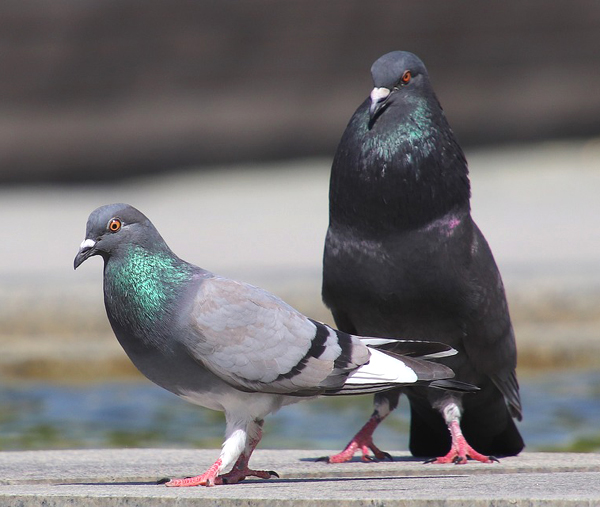
Step 12: Learn About Diseases And Health Problems
Like other domestic poultry birds, pigeons are also susceptible to some diseases and other health problems. Although, diseases in pigeons are comparatively less than any other poultry birds. They can suffer by TB, paratyphoid, cholera, pox, newcastle, influenza etc.
They can also suffer by various louse and malnutritious diseases. Taking preventive methods is always recommended for controlling diseases. Call a vet immediately, if you notice any disease or health problem in your pigeons.
Step 13: Ensure Good Caring and Other Management
Taking good care of the birds is very important for pigeon farming business. Good caring not only helps the birds to grow better, but also helps them to stay healthy. So try to take good care of your birds. Here we are trying to describe about some caring tasks:
- Always try to follow advice from an experienced veterinarian.
- Always try to keep the house clean and germ free. Hygiene rearing system is a must for keeping your birds healthy.
- Separate the disease affected bird from healthy birds.
- Vaccinate them timely.
- Keep them free from worms.
- Feed them balanced food to prevent malnutritious diseases.
Step 14: Marketing
This is another important part of successful pigeon farming business. Because your venture will not be much profitable if you can market your products easily. So, try to determine the marketing strategies before starting this business. Most probably, you will be able to sell your products in the local market, or any nearest town.

These are the common steps and ways for starting and operating a successful pigeon farming business. Hope this guide has helped you! Good luck and may God bless you!
Frequently asked questions (FAQs)
People often ask different questions regarding pigeon farming business. Here we are trying to list the most common and frequently asked questions related to pigeon farming and trying to answer these questions.
Is pigeon farming profitable?
Yes, commercial pigeon farming is a profitable business, especially if you can manage everything perfectly. Pigeons have very high demand and good value in the market. So, it will be a very good and profitable business for you.
Can pigeons be farmed?
Yes, pigeons can be farmed. And commercial pigeon farming is a profitable business.
What is pigeon farming called?
Pigeon farming is often referred to as “pigeonry” or “pigeon keeping.” If you start breeding pigeons for racing or show purposes, it might also be called “racing pigeon farming” or “fancy pigeon breeding.”
Is pigeon farming legal?
Yes, pigeon farming is legal in most countries. Although, in some areas you may have to get permissions for raising these birds commercially.

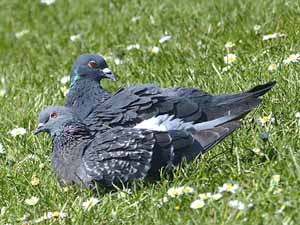

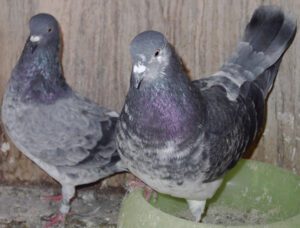
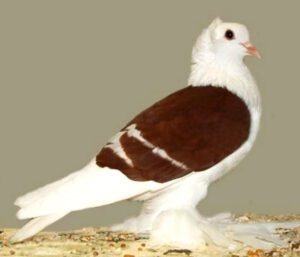
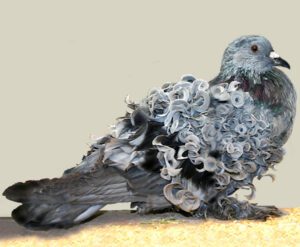
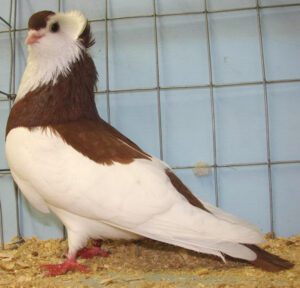
Wanting to get into raising racing pigeons, and would like to have some pamplets or subscribe to a magazine explaining how to get into them, and raise them.
I want pamphlets and contacts of breeders in Kenya
I started being serious about pigeons 2020. although since from an early childhood age ive always keep a pigeon in my back yard…now im training my son to care for pigeons…i know have 10 pigeons they were 11 one died this afternoon
I want to do Maltese pigeon farming as my project for both meat n other reasons..how can I help me get the information
I want to start raising pegions in Malawi. need a pumphlet
Am in Nigeria and I really like to rear those beautiful pigeons , how do I gat them?
I have them but am in kenya